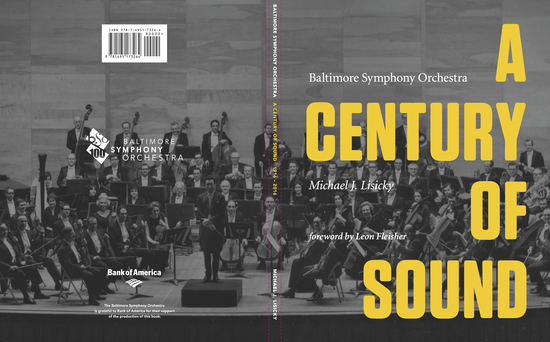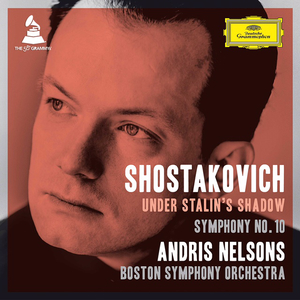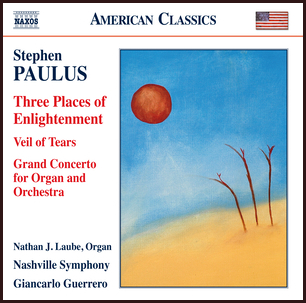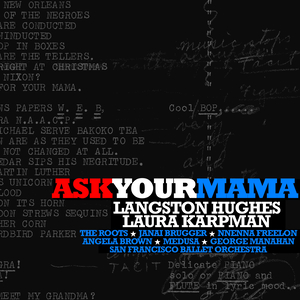A Century of Sound
Baltimore Symphony oboist Michael Lisicky, also nationally known as a department store historian, author, and lecturer, has written a book about the Baltimore Symphony Orchestra’s first one hundred years, entitled Baltimore Symphony Orchestra: A Century of Sound. Lisicky has done extensive research through BSO archives, as well as information gathered from other sources, including current and former musicians, audience members, music directors, managers, and community leaders.
 The book traces the origin of the Baltimore Symphony as the first American orchestra created by a municipality, with a clear mandate to provide music for the citizens of Baltimore, both for listening pleasure and for educational purposes. The building of the Joseph Meyerhoff Symphony Hall, finished in 1982, is featured prominently, as well as the orchestra’s concurrent artistic rise in stature. Baltimore Sun music critic Tim Smith, in a review, noted that the book does not gloss over the difficult parts of the orchestra’s history, and called it a “breezy, informative ride through 100 eventful years.”
The book traces the origin of the Baltimore Symphony as the first American orchestra created by a municipality, with a clear mandate to provide music for the citizens of Baltimore, both for listening pleasure and for educational purposes. The building of the Joseph Meyerhoff Symphony Hall, finished in 1982, is featured prominently, as well as the orchestra’s concurrent artistic rise in stature. Baltimore Sun music critic Tim Smith, in a review, noted that the book does not gloss over the difficult parts of the orchestra’s history, and called it a “breezy, informative ride through 100 eventful years.”
Note: the book can be obtained at https://www.bsomusic.org/online-store/bso-centennial/centennial-book.aspx
ICSOM at the Grammys
 Three ICSOM orchestras were featured on albums that won awards at the 58th Grammy Awards held on February 15. The Boston Symphony Orchestra’s album Shostakovich: Under Stalin’s Shadow won the award for Best Orchestral Performance. It was the first of several planned recordings of the orchestra in collaboration with its Music Director Andris Nelsons and Deutsche Grammophon [Note: see the Orchestra Newslets in the May 2015 issue of Senza Sordino]. Recorded live at Symphony Hall, Boston, in 2015, the album includes the composer’s 10th Symphony and the “Passacaglia” from Act II of his opera Lady Macbeth of Mtsensk.
Three ICSOM orchestras were featured on albums that won awards at the 58th Grammy Awards held on February 15. The Boston Symphony Orchestra’s album Shostakovich: Under Stalin’s Shadow won the award for Best Orchestral Performance. It was the first of several planned recordings of the orchestra in collaboration with its Music Director Andris Nelsons and Deutsche Grammophon [Note: see the Orchestra Newslets in the May 2015 issue of Senza Sordino]. Recorded live at Symphony Hall, Boston, in 2015, the album includes the composer’s 10th Symphony and the “Passacaglia” from Act II of his opera Lady Macbeth of Mtsensk.
 The late composer Stephen Paulus has three works on the album featuring the Nashville Symphony that won the award for Best Classical Compendium. The orchestra’s principal string players (Jun Iwasaki, Carolyn Wann Bailey, Daniel Reinker, and Anthony LaMarchina) performed as soloists on his Concerto for String Quartet and Orchestra (Three Places of Enlightenment), and the orchestra’s Music Director, Giancarlo Guerrero conducted.
The late composer Stephen Paulus has three works on the album featuring the Nashville Symphony that won the award for Best Classical Compendium. The orchestra’s principal string players (Jun Iwasaki, Carolyn Wann Bailey, Daniel Reinker, and Anthony LaMarchina) performed as soloists on his Concerto for String Quartet and Orchestra (Three Places of Enlightenment), and the orchestra’s Music Director, Giancarlo Guerrero conducted.
 The San Francisco Ballet Orchestra, conducted by George Manahan, is one of several featured artists on the album Ask Your Mama, which won the award for Best Engineered Album, Classical, and was one of the albums cited in the award for Producer of the Year, Classical. Langston Hughes’ eponymous poem contains musical notations, which the composer Laura Karpman decided in 2004 to fully realize. The work premiered at Carnegie Hall in 2009.
The San Francisco Ballet Orchestra, conducted by George Manahan, is one of several featured artists on the album Ask Your Mama, which won the award for Best Engineered Album, Classical, and was one of the albums cited in the award for Producer of the Year, Classical. Langston Hughes’ eponymous poem contains musical notations, which the composer Laura Karpman decided in 2004 to fully realize. The work premiered at Carnegie Hall in 2009.
Minnesota Orchestra Musicians Donation
The Minnesota Orchestra Musicians (MOM), a 501(c)(3) organization formed in February, 2013, during the lockout of the Minnesota Orchestra, announced that it will donate the remainder of its assets—$250,000—to the Minnesota Orchestra and dissolve itself. The gift, made in memory of the late orchestra patron Lee Henderson, will establish the Bellwether Fund. A committee of musicians will oversee the Fund, working together with orchestra staff to undertake community and educational programming.
“We are really pleased the musicians have made this decision,” said Minnesota Orchestra President and CEO Kevin Smith. “It represents a significant step forward for the Orchestra and recognizes that we serve our mission best when we harness the unified strength of the entire organization.”
The Bellwether Fund will continue the mission of the former MOM, whose independently produced programming has already begun to be incorporated into that of the orchestra, in such programs as the “Symphonic Adventures” concerts in area high schools, and the “Sensory Friendly” concerts providing an appropriate concert experience for those with disabilities.
Kate Nettleman, President of the Board of MOM, said, “We Musicians thank you for believing in and supporting us during our time of great need during the lockout. The gift…represents our committed ongoing investment in the mighty Minnesota Orchestra. We are proud of all that the Orchestra has accomplished—working as a unified team, in concert with our greater community—and we know that our Minnesota Orchestra will continue to shine brightly, far into the future.”
Note: This newslet was amended 4/26/16 to correct the Minnesota Orchestra Board status of Lee Henderson
Rochester Finds Retirement Plan Savings
The Retirement Plan Committee of the Rochester Philharmonic, tasked by the Board in the spring of 2015 with reviewing the fiduciary risks of the staff and musician retirement plans, quickly recognized a key lack of expertise among its members. The joint committee, comprising two musicians and three staff members, proceeded to interview and hire a financial advisor. The serendipitous result was the discovery that the current plans include redundant administrative costs, buried fees, and high overall costs to the participants. The committee has crafted a proposal (just approved by the musicians as of this writing) that would combine the separate plans under one provider—eliminating unnecessary administrative fees, collecting all the assets into one large pool, and achieving a lower overall cost ratio as a result of the larger asset size. The combined effect of these changes is expected to be an annual cost savings of at least $20,000. As an additional benefit, the musicians and staff will also be able to take advantage of future educational offerings provided by the financial advisor.
New Music Directors on the East Coast
Jaap van Zweden has been appointed Music Director of the New York Philharmonic beginning the 2018-19 season. He will succeed Alan Gilbert, who has been Music Director since 2009. Gilbert’s final season as music director will be 2016-17. Van Zweden will be Music Director Designate for the 2017-18 season, conducting several weeks that season. As Music Director, he will conduct 12 weeks each season, plus tours, during his five-year contract. Maestro van Zweden is currently Music Director of the Dallas Symphony Orchestra. “As the re-building of David Geffen Hall rapidly approaches, the musicians of the NY Philharmonic are excited to have Jaap van Zweden at the helm during the two year displacement and reopening of the new hall. Maestro van Zweden has the energy both on and off the podium to turn the challenges into new opportunities with the NY audiences, while keeping artistic standards at a very high level,” said Ken Mirkin, NYP ICSOM delegate and Negotiating Committee Chair.
233 miles down the road from Geffen Hall at the Kennedy Center in Washington, DC, the National Symphony Orchestra has also named a new Music Director, Gianandrea Noseda. Jennifer Mondie, Member-at-Large and NSO Orchestra Committee chairman, said, “From the first moments of collaboration with maestro Noseda in his appearance in 2011, the orchestra felt a deep connection. It is with great enthusiasm that we start this adventure together.”
Noseda will succeed Christoph Eschenbach, who has held the post since 2010. Eschenbach will continue through the 2016-17 season, becoming Music Director Emeritus thereafter. Noseda will assume the Music Directorship in the 2017-18 season with seven weeks in front of the orchestra that season and then 12 weeks annually thereafter for the remainder of his four-year contract. Noseda is currently the Music Director of Teatro Regio di Torino and has held various titles with the Mariinsky Theatre, the Rotterdam Philharmonic, the BBC Philharmonic, and the Israel Philharmonic.
New Education Grant in Nashville
The Nashville Symphony announced the receipt of a nearly $1 million grant in January. The donation, from the Mellon Foundation, will largely fund a new education program by the orchestra, called “Accelerando”, that seeks to increase the number of minority orchestral musicians.
Accelerando will identify talented pre-college orchestral musicians of ethnically diverse backgrounds through an audition process. The selected students will receive free private instruction from members of the orchestra (or other highly qualified instructors), as well as complimentary tickets to Nashville Symphony concerts and solo and chamber music performance opportunities. Initially, the orchestra intends to enroll six students, adding five more students per year until reaching the program capacity of 24 students. The first round of auditions will take place on March 12, with the program beginning this September.
Quoted in an article in the Nashville Scene, Nashville Symphony education director Walter Bitner said, “The grant will provide us with 75 percent of the funding we’ll need for Accelerando for the next six years. We’ll still need to raise an additional $300,000 in matching funds, but what the Mellon grant means is we can now move forward with Accelerando and really do it right.”






[…] Two previous albums in the series also won Grammys for Best Orchestral Performance (Note: see the March 2016 and March 2017 issues). In all, the project accounts for four of the 11 Grammys won by the […]